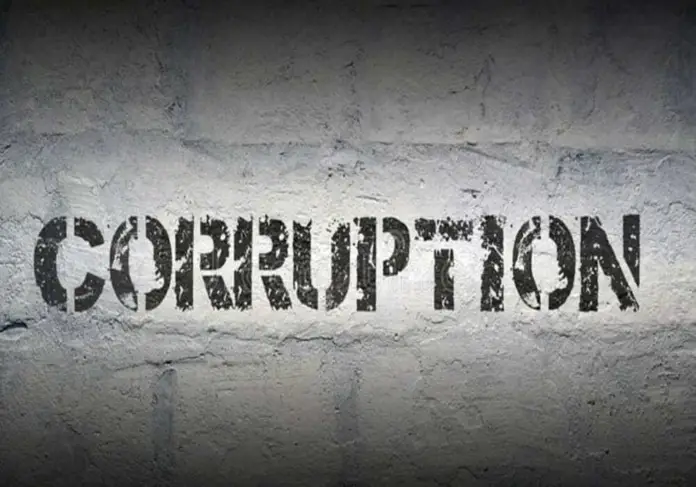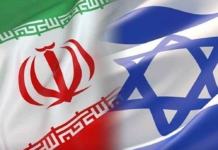Integrity, Transparency, and the fight against corruption have to be part of the culture. They have to be taught as a fundamental value—Angel Gurria, OECD Secretary-General
Leaders can fight corruption and promote peace all at once. Governments must open up space to include the public in decision-making—from activists and business owners to marginalised communities and young people. In democratic societies, the people can raise their voices to help root out corruption and demand a safer world for us all—Daniel Eriksson, Chief Executive Officer, Transparency International
The 2022 Corruption Perception Index (CPI), released by Transparency International (IT), reveals “global peace has been deteriorating for 15 years” and “corruption has been both a key cause and result of this”. It observes that “most countries are failing to stop corruption” and “global average remains unchanged for over a decade at just 43 out of 100”. It further highlights, “More than two-thirds of countries score below 50, while 26 countries have fallen to their lowest scores yet. Despite concerted efforts and hard-won gains by some, 155 countries have made no significant progress against corruption or have declined since 2012”.
As observed, corruption levels remain standstill for the eleventh year straight. The 2022 Corruption Perception Index (CPI) ranks 180 countries and territories around the world and measures public sector corruption with a scale of zero (0) known as “highly corrupt” and 100 as “very clean”.
The interesting thing that emerges in the report for 2022 is that there is no significant improvement in eradicating corruption. Transparency International, while measuring the performance of 180 countries on CPI-assigned scale, has found that two-thirds of jurisdictions are the most corrupt and rated below 50.
The cleanest country, as in the past, remained Denmark, which obtained an overall score of 90—it ranked number one on the CPI, followed by New Zealand and Finland both scoring 87 with ranking at number 2, are known as the second cleanest jurisdictions in the world. The most corrupt country on CPI is Somalia ranked at number 180 with an overall score of 12 on global CPI followed by South Sudan and Syria that ranked 178 and got an overall score of 13.
Interestingly, 26 countries have fallen to their historic low on the CPI. The United Kingdom, rated 78 last year, ranked 73 in 2022. This is its lowest ranking since CPI was launched. Gillian Duncan, in her article, UK falls to its lowest ranking on the global corruption index, published in National News on January 31, 2023, notes: “Transparency International said problems including irregularities in the procurement of personal protective equipment (PPE) and a string of ministerial breaches contributed to the UK’s fall”. In line with UK, Qatar ranked at number 40 and obtaining an overall score of 58 is at its historic low as well.
The CPI 2022 Report highlights ten countries that have shown a significant decline in their score—Luxembourg (77), Canada (74), United Kingdom (73), Austria (71), Malaysia (47), Mongolia (33), Pakistan (27), Honduras (23), Nicaragua (19) and Haiti (17). Similarly, eight countries improved their ranking in the last ten years including Ireland (77), South Korea (63), Armenia (46), Vietnam (42), the Maldives (40), Moldova (39), Angola (33) and Uzbekistan (31).
In the last decade overall performance of the world in curtailing corruption remains unsatisfactory despite multiple initiatives launched by various watchdogs and tightening regulations and controls. The International Consortium of Investigative Journalists (ICIJ) uncovered/unveiled thousands of offshore companies, foundations, and trusts through their Panama, Pandora, and Bahamas leaks including offshore investigations. However, the world has not witnessed any noteworthy improvements in countering misuse of public funds and containing the movement of illegally obtained funds. Unfortunately, no progress was made on this front in the eleven consecutive years as noted by Transparency International in its 2022 report.
It is worth mentioning that a country like United Kingdom known for having one of the most efficient financial crimes watchdogs [National Crime Agency (NCA)] was ranked at its historic low. Similarly, Pakistan’s score on the corruption perception index has declined from 28 assigned in 2021 to 27 assigned in CP Index 2022.
Interestingly, placed on the list of jurisdictions under increased monitoring by the Financial Action Task Force (FATF), Pakistan made high-level political commitments to work for strengthening Anti-Money Laundering and Combating the Financing of Terrorism (AML-CFT) regimes and addressing deficiencies related to them. However, since 2018, Pakistan has been downgraded almost 23 points on its global ranking and five points on its overall score on CPI confirming that Pakistan has failed to honour its commitments and remained unsuccessful in ensuring transparency in its financial system to safeguard public sector integrity. The most worrisome aspect is that the international watchdog reports are not convinced either with our performance or understanding of the country’s law enforcement agencies and courts regarding detection, investigation, and prosecution strategies.
Strangely, downgrading of our ranking occurred during Premier Imran Khan’s tenure, who claimed to be a champion for the cause of eradicating corruption. The transparency International in its report has observed that Prime Minister Imran Khan came to power promising to tackle rampant corruption and promoting social and economic reforms, but little has been accomplished on any of these areas during his regime [he took oath on 18 August 2018 and removed from premiership on 10 April 2023 after a successful vote of no-confidence].
The report further claims that after his ouster as a result of no-confidence vote, the Election Commission of Pakistan (ECP) disqualified him from running for office for another five years and filed a plea in session court for criminal proceedings over allegations of failing to declare gifts and profits made out of sale of items from Toshakhana.
Similarly, cabinet members and party leaders of Pakistan Tehreek-e-Insaf (PTI) have been facing various corruption charges, and in some cases, the Supreme Court of Pakistan stayed investigations initiated by National Accountability Bureau (NAB) for example Bus Rapid Transit (BRT) Peshawar, Malam Jabba etc.
Additionally, Imran Khan and some PTI leaders’ names surfaced in various scandals such as the misuse of helicopters, affiliation with Arif Naqvi, embezzlement in party funds. As reported in the media name of the first lady appeared in the scandal for receiving land and expensive gifts from property tycoon Malik Riaz against the return of 196 million pounds repatriated from the UK,
Subsequently, Pakistan agreed with the International Monetary Fund (IMF) as mentioned in the Country Staff Report No. 22/288 for fostering better governance and controlling corruption by strengthening effectiveness of anticorruption institutions.
In this regard, Pakistan was supposed to establish assets declaration system with focus on high-level public officials including federal cabinet members by September 2022. However, until the start of the ninth review early this month by IMF, Pakistan failed to fulfill its promise [Of assets declaration & IMF bailouts, MinuteMirror, February 6, 2023].
The Federal Board of Revenue (FBR) issued rules [Sharing of Declaration of Assets of Civil Servants Rules, 2023] on February 1, 2023 but disregarded international standards in barring the banks from performing their legal obligations.
During the seventh and eighth combined reviews as stated in the Country Staff Report the government also agreed to a comprehensive review of the anticorruption institutional framework (i.e., National Accountability Bureau) by a task force, in collaboration with independent experts having international experience and civil society organizations by the end of January 2023. However, so far nothing has been done to ensure transparency and address issues raised by the global lender.
The government needs to take effective measures to address IMF and FATF concerns which would not be possible unless the people dealing with these technical matters are well-trained. They should possess knowledge and experience to differentiate between various dimensions of corruption involving political elite, administrative as well as state capture and kleptocracy. Moreover, the government should improve international cooperation and its prosecution ability besides introducing a transparent mechanism to investigate, indict and punish persons involved in financial crimes [Improving accountability laws and capacity, MinuteMirror, July 4, 2022].
The judicial system plays a pivotal role in combating corruption but unfortunately, courts in Pakistan have been under severe criticism due to their questionable judgments during the last few years. Due to the weak accountability system in place for judges, some of their decisions could not stand the test of legal substance at international forums for which the country paid a heavy price. It is high time that the government should launch a strict mechanism for the appointment of judges. Without reforming our existing judicial system, we cannot avoid/avert the embarrassment of being placed at the bottom on global indices [Pakistan’s pathetic rankings, MinuteMirror, September 26, 2022, and Redefining the role of the judiciary, MinuteMirror, July 25, 2022].
____________________________________________________________________
Dr. Ikramul Haq, Advocate Supreme Court, specializes in constitutional, corporate, media, intellectual property, arbitration, international taxation, IT, and ML/CFT-related laws. He is the author of many books on the law, economic and political history of Pakistan, drugs, arms, terrorism, and related matters. He has been studying phenomena of arms-for-drugs, narco-terrorism, and the global heroin economy since 1979 and authored Pakistan: From Hash to Heroin and its sequel Pakistan: From Drug-trap to Debt-trap. He studied journalism, English literature, and law. He is the Chief Editor of Taxation He is the country editor and correspondent of the International Bureau of Fiscal Documentation (IBFD) and a member of the International Fiscal Association (IFA). He is Visiting Faculty at the Lahore University of Management Sciences (LUMS) and a member Advisory Board and Visiting Senior Fellow of the Pakistan Institute of Development Economics (PIDE).
Abdul Rauf Shakoori, Advocate High Court, is a subject-matter expert on AML-CFT, Compliance, Cyber Crime, and Risk Management. He has been providing AML-CFT advisory and training services to financial institutions (banks, DNFBPs, investment companies, money service businesses, insurance companies, and securities), government institutions including law enforcement agencies located in North America (USA & CANADA), Middle East and Pakistan. His areas of expertise include legal, strategic planning, cross border transactions including but not limited to joint ventures (JVs), mergers & acquisitions (M&A), takeovers, privatizations, overseas expansions, USA Patriot Act, Banking Secrecy Act, Office of Foreign Assets Control (OFAC).






